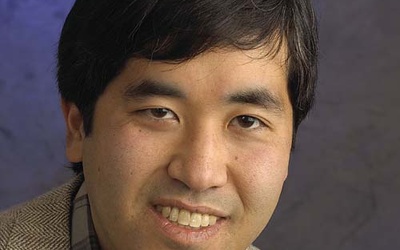
Takeyuki Tsuda
Takeyuki (Gaku) Tsuda is an Associate Professor of Anthropology in the School of Human Evolution and Social Change at Arizona State University. His primary academic interests include international migration, diasporas, ethnic minorities, ethnic and national identity, transnationalism and globalization, ethnic return migrants, and the Japanese diaspora in the Americas. His publications include numerous articles in anthropological and interdisciplinary journals as well as a book entitled Strangers in the Ethnic Homeland: Japanese Brazilian Return Migration in Transnational Perspective (Columbia University Press, 2003).
Updated June 2012
Stories from This Author
Global Inequities and Diasporic Return: Japanese American and Brazilian Encounters with the Ethnic Homeland: Part 10 of 10
Aug. 27, 2012 • Takeyuki Tsuda
Read Part 9 >> CONCLUSION: SAME HOMELAND, DIFFERENT HOMECOMINGS When I was conducting participant observation among Japanese Brazilian workers at Toyama factory in Japan, I was wearing the same uniform, doing the same type of work, spoke to them in Portuguese, and lived with them in the same company apartments. As a Japanese American anthropologist, I was a consummate insider. Nonetheless, my Japanese Brazilian co-workers and roommates would sometimes mention: “Your life in Japan must be easier than ours because you are …
Global Inequities and Diasporic Return: Japanese American and Brazilian Encounters with the Ethnic Homeland: Part 9 of 10
Aug. 20, 2012 • Takeyuki Tsuda
Read Part 8 >> Because of their relatively positive socio-occupational and ethnic reception in Japan, none of my Japanese American informants developed negative sentiments toward Japanese society or felt alienated from their ethnic homeland. As a result, they did not experience a resurgence of an oppositional nationalist identity in Japan like their Brazilian counterparts. Some of them do mention that they feel more American in Japan, but it was more of a recognition of their cultural differences with the Japanese than …
Global Inequities and Diasporic Return: Japanese American and Brazilian Encounters with the Ethnic Homeland: Part 8 of 10
Aug. 13, 2012 • Takeyuki Tsuda
Read Part 7 >> The Japanese Americans: A Broadening of Ethnic Consciousness Because the Japanese Americans have a much more favorable ethnic homecoming, they do not react ethnically against Japanese society through an assertion of their nationalist sentiments. Instead, their positive experiences as ethnic return migrants increase their identification with their ethnic homeland of Japan and produce a more ethnically inclusive transnational consciousness as members of a diasporic community of Japanese descendants. Although the Japanese Americans are also treated as foreigners in …
Global Inequities and Diasporic Return: Japanese American and Brazilian Encounters with the Ethnic Homeland: Part 7 of 10
Aug. 6, 2012 • Takeyuki Tsuda
Read Part 6 >> The social alienation that Japanese Brazilian ethnic return migrants experience in Japan therefore completely undermines their previously favorable images of and nostalgic attachment to their ethnic homeland of Japan. As Japan comes to take on a quite negative meaning for them, many of them emotionally distance themselves from the country and no longer experience it as an ethnic homeland. Homeland is not simply a place of origin—it must be imbued with positive emotional affect as a place …
Global Inequities and Diasporic Return: Japanese American and Brazilian Encounters with the Ethnic Homeland: Part 6 of 10
July 30, 2012 • Takeyuki Tsuda
Read Part 5 >> DIASPORIC HOMECOMINGS AND ETHNIC IDENTITY: NATIONALIST VERSUS TRANSNATIONAL Because the Japanese Brazilians and Americans feel a certain nostalgic, emotional attachment to their ancestral homelands as ethnic return migrants, their disparate diasporic homecomings have some important long-term implications for their ethnic identities. This contrasts with other types of immigrants who move to completely foreign countries to which they feel little affiliation and ethnocultural commonality. Although the Japanese Brazilians in Brazil had developed a stronger transnational attachment to Japan than …
Global Inequities and Diasporic Return: Japanese American and Brazilian Encounters with the Ethnic Homeland: Part 5 of 10
July 23, 2012 • Takeyuki Tsuda
Read Part 4 >> The global prominence of the United States has also created another, less apparent transnational cultural affinity between Japan and the United States: a small, but younger generation of truly bi-cultural, cosmopolitan Japanese Americans able to be socially accepted in both societies. As Japan become economically prosperous after World War II, large scale Japanese labor migration to the Americas ceased. However, because of its international stature, a small number of Japanese continued to migrate to the United States …
Global Inequities and Diasporic Return: Japanese American and Brazilian Encounters with the Ethnic Homeland: Part 4 of 10
July 16, 2012 • Takeyuki Tsuda
Read Part 3 >> GLOBAL CULTURAL AFFINITIES AND ETHNIC HOMECOMINGS In addition to their higher social status in Japan, the Japanese Americans benefit from the international prominence of the United States in another way. The Japanese feel more cultural affinity toward Americans and treat them with greater ethnic respect than foreigners from other countries, especially “backward” Third World countries like Brazil, which are not accorded much stature and respect in Japan. The Japanese Brazilians frequently complain about the lack of knowledge of …
Global Inequities and Diasporic Return: Japanese American and Brazilian Encounters with the Ethnic Homeland: Part 3 of 10
July 9, 2012 • Takeyuki Tsuda
Read Part 2 >> Social Class Interactions: Parochial Versus Cosmopolitan The Japanese Brazilians and Americans also interact with very different groups of Japanese because of their social class position in Japan. Because of their status as unskilled immigrant workers, the Japanese Brazilians primarily interact with working class Japanese, often in smaller, industrial satellite cities and towns (sometimes in the countryside), where many Japanese Brazilians work. Not only are such blue collar Japanese less educated, most have never lived abroad, have little interaction …
Global Inequities and Diasporic Return: Japanese American and Brazilian Encounters with the Ethnic Homeland: Part 2 of 10
July 2, 2012 • Takeyuki Tsuda
Read Part 1 >>DIFFERENTIAL SOCIAL CLASS POSITION AND DIVERGENT ETHNIC HOMECOMINGSUnskilled Immigrant Workers Versus Tourists, Students, and ProfessionalsThe main reason for the divergent diasporic homecomings of the Japanese Brazilians and Japanese Americans is their very different social class status as immigrants in Japan, which is a direct product of their countries of origin’s position in the global order and not differences in their socioeconomic background. Although both groups of nikkeijin are solidly middle class, highly educated (both are overrepresented at …
Global Inequities and Diasporic Return: Japanese American and Brazilian Encounters with the Ethnic Homeland: Part 1 of 10
June 25, 2012 • Takeyuki Tsuda
INTRODUCTION: GLOBAL HIERARCHIES AND ETHNIC RETURN MIGRATION There has been considerable recent interest in ethnic homecomings, not just by immigrants who have lived abroad for decades, but also by their later generation diasporic descendants (Long and Oxfeld 2004, Markowitz and Stefansson 2004, Münz and Ohliger 2003, Rock and Wolff 2002). In contrast to first generation immigrants who return to their countries of birth, the ethnic homecomings of these later generation diasporic descendants who return to their countries of ethnic origin are …


